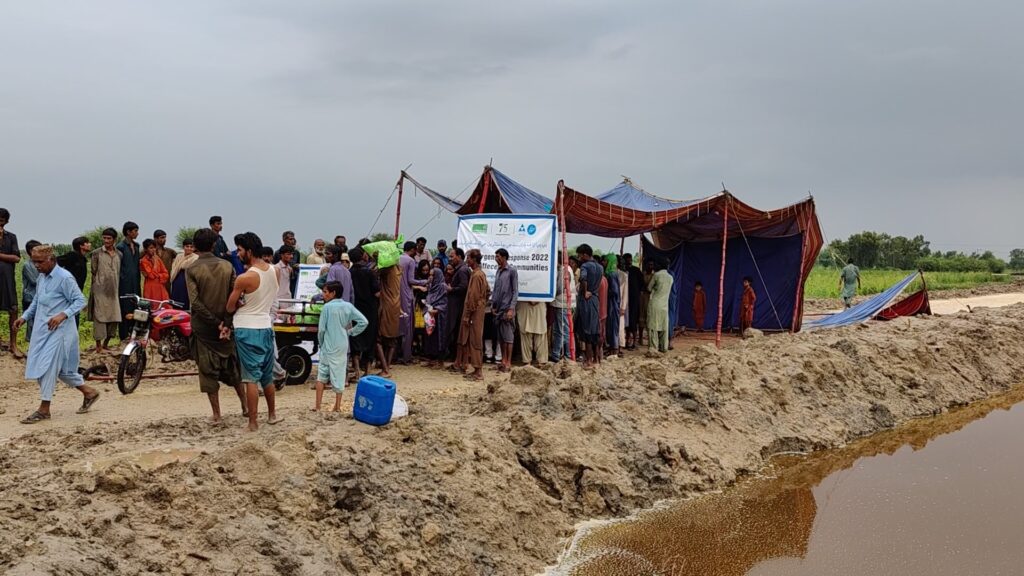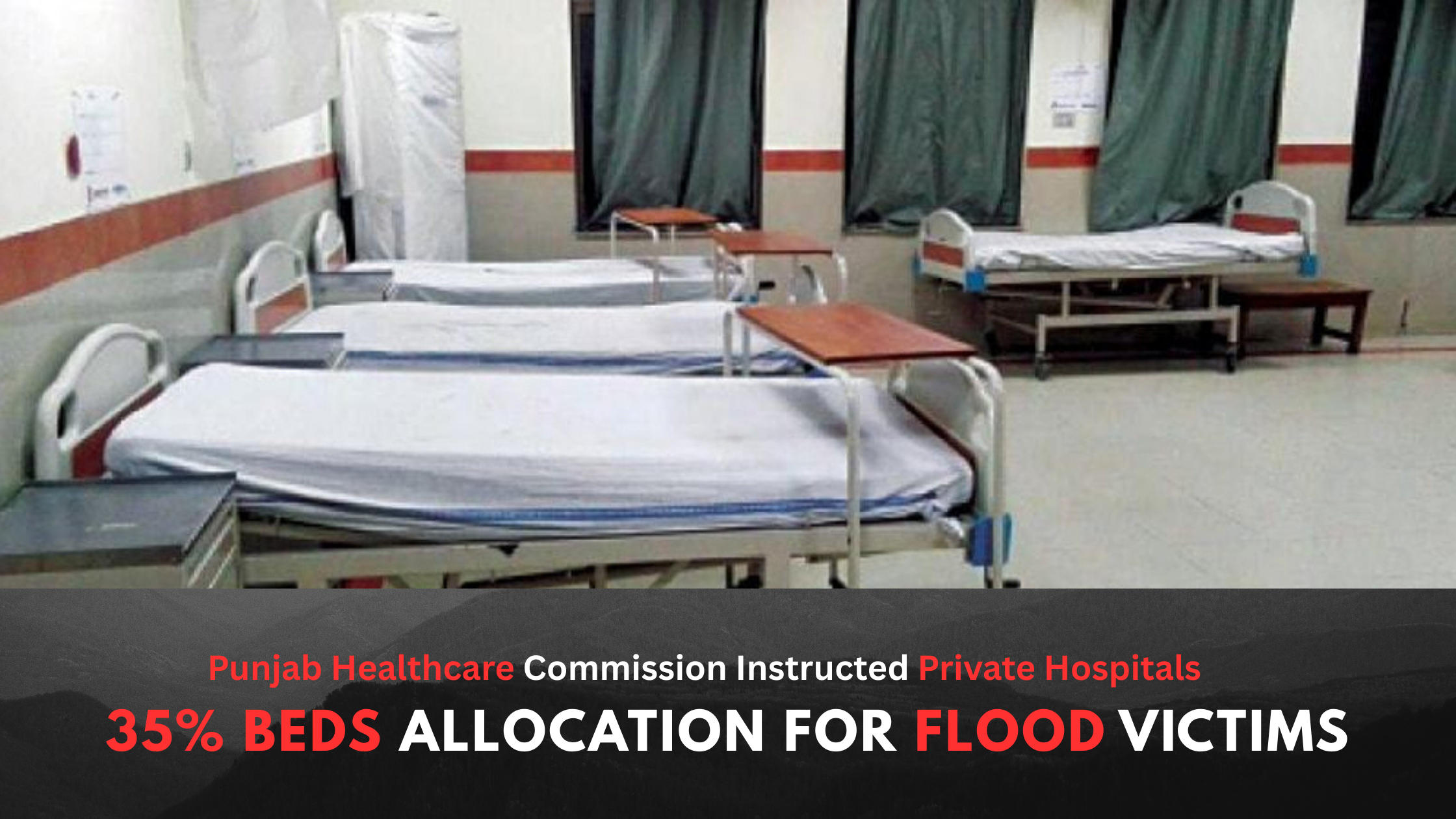Punjab triggers a critical healthcare shift: private hospitals are now mandated to reserve over 35% beds for flood victims, with free treatment and around-the-clock care.
The Punjab Healthcare Commission (PHC) has placed private hospitals on “Emergency High Alert,” instructing them to allocate 35% of total beds for the treatment of flood victims. The circular, issued on August 29, demands immediate compliance. As part of the directive, hospitals must provide free-of-cost treatment and maintain uninterrupted access to doctors, nurses, and support staff. Emergency departments, ICUs, and high-dependency units are required to operate 24/7.
To ensure resilience, hospitals must keep biomedical and diagnostic units, ventilators, cardiac monitors, X-ray, ultrasound, CT scan, and MRI machines fully functional. Enhanced monitoring systems are also mandated to proactively prevent outbreaks of waterborne diseases.
Hospitals must prepare evacuation plans to transfer patients to safer facilities if their own buildings become structurally unsafe. Coordination with Rescue 1122, district health officials, NGOs, and mobile clinics is required for efficient patient relocation.
The recent floods have displaced millions and exposed the vulnerability of Pakistan’s health infrastructure. Health experts warn of imminent risks from waterborne diseases, as disaster zones still lack clean water and stable services. Private sector engagement like this move is vital to absorbing patient surges and easing pressure on public hospitals.
ALSO READ
Maryam Nawaz Clinic on Wheels Program: A New Era of Healthcare in Punjab
Notable Relief Efforts Across Pakistan
Shifa International Hospital Limited conducted free medical camps in Rawalpindi, treating nearly 1,000 flood victims, providing care for waterborne illnesses and other acute conditions.
Emergency response camps by organizations like Indus Hospital, Edhi Foundation, and Alkhidmat Foundation are offering critical mobile healthcare services across affected areas. These contributions underscore how multi-sectoral collaboration reinforces the healthcare system during crises.

Mandating private hospitals to allocate 35% of their beds for flood victims marks a bold and necessary step in Pakistan’s crisis response. This policy bridges the public-private divide, enabling equitable healthcare access during emergencies. Yet, its success depends on strict implementation and proactive coordination among medical institutions, NGOs, and emergency services.
FAQs
Why are private hospitals being asked to allocate 35% of their beds for flood victims?
The government has directed private hospitals to allocate 35% of their beds to ensure immediate medical relief for people affected by floods. Public hospitals are already overcrowded, and this step aims to distribute the patient load effectively. By involving the private sector, healthcare resources can be optimized. This ensures that flood victims receive timely and life-saving medical care.
Who will monitor the allocation of beds in private hospitals?
Provincial health authorities and relevant government agencies will supervise the implementation of this directive. Regular inspections and reports will be conducted to ensure compliance. Hospitals failing to comply may face penalties or stricter oversight. The monitoring ensures transparency and accountability in patient care distribution.
What types of medical care will flood victims receive in private hospitals?
Flood victims admitted to private hospitals will have access to emergency care, trauma treatment, infectious disease management, and general medical support. Special arrangements may also be made for maternal and child health services. Essential medicines and diagnostic support will be prioritized for them. The goal is to provide holistic care to address both immediate and long-term health concerns.
How will treatment costs for flood victims be managed in private hospitals?
The government, in collaboration with disaster relief funds, is expected to cover or subsidize the medical expenses of flood victims. This ensures that vulnerable communities are not burdened with healthcare costs during crises. Some private hospitals may also offer charitable treatment. Cost-sharing mechanisms are under discussion to support both patients and hospitals.
How does this decision impact the healthcare system in Pakistan?
This decision highlights the importance of public-private collaboration in managing national health emergencies. It reduces the pressure on government hospitals, ensuring that no patient is left untreated. The move also strengthens disaster response mechanisms within the healthcare sector. Ultimately, it ensures equitable access to healthcare for flood-affected communities.



Join The Discussion